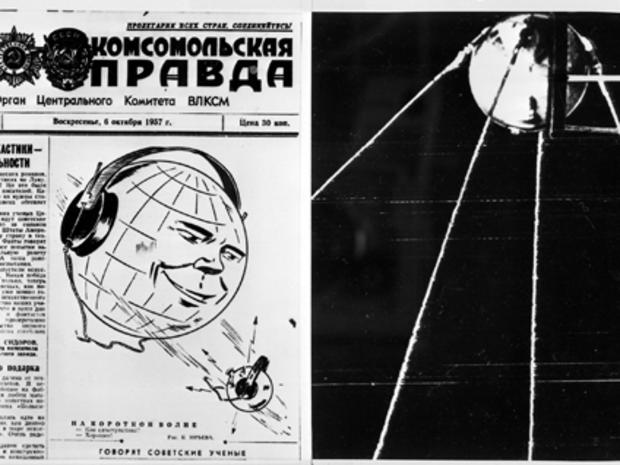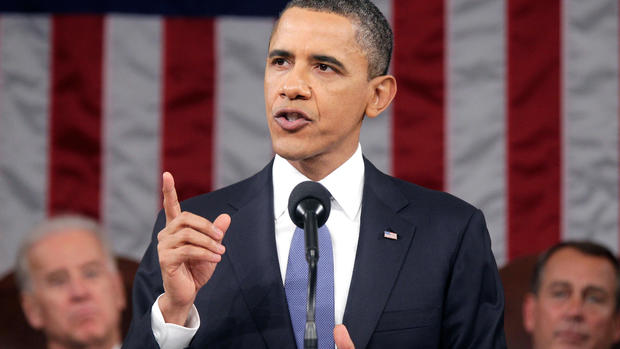Will Obama's "Sputnik" Take Off?
"Half a century ago, when the Soviets beat us into space with the launch of a satellite called Sputnik, we had no idea how we'd beat them to the moon. The science wasn't there yet. NASA didn't even exist. But after investing in better research and education, we didn't just surpass the Soviets; we unleashed a wave of innovation that created new industries and millions of new jobs. This is our generation's Sputnik moment."
-- President Obama, State of the Union, Jan. 25, 2011
The unmanned Sputnik 1 was launched on Oct. 4, 1957 by the Soviet Union, touching off an intense space race with the U.S. This technological achievement by the Soviets spurred the U.S. into action, culminating in the first men, Americans, standing on the moon just 12 years later.
More than 50 years later, the innovation engine and the U.S. economy have been through many cycles of growth and decline. In this latest post-recession phase, the economy isn't running at full throttle, especially in the area of job creation. Countries such as China and India are outpacing the U.S. economy in growth and seriously competing on the education and innovation fronts.
Full Obama Speech Text
CBSNews.com Special Coverage: State of the Union 2011
The International Monetary Fund projects that the U.S. economy will grow at around 3 percent in 2011. China's economy is expected to grow at 9.6 percent and India at 8.4 percent for 2011, according to the IMF. The U.S. outspends competitors on research and development, but China and India are making innovation a cornerstone of their economies going forward.
Less than half of U.S. students are proficient in science, according to a recent Education Department report. "The results released today show that our nation's students aren't learning at a rate that will maintain America's role as an international leader in the sciences," said Education Secretary Arne Duncan.
In his State of the Union speech, Mr. Obama called for investments in education, infrastructure, research and innovation. He contends that improving the education system, stimulating more math and science graduates, pioneering new industries, investing in R&D and encouraging entrepreneurship will put the U.S. back on the fast track in the world economy.
He said, "We know what it takes to compete for the jobs and industries of our time. We need to out-innovate, out-educate, and out-build the rest of the world."
The economy is supposedly poised for a comeback in the first half of 2011, corporate profits are up and the Dow Jones average is hovering near 12,000.
But will those green shoots of U.S. economic vitality help create a renaissance of innovation, education and manufacturing, and bring the jobless number significantly down from 9.4 percent?
In a climate in which the Congress wants to cut back on government spending, government investments in innovation are a harder sell. Private industry has the incentive to innovate, hire the smartest people and out-build competitors.
But the DNA of a global corporation is profits, not job creation in the U.S. After a few years of retrenching and cost cutting, U.S. corporations are sitting on an estimated $2 trillion.
The president said in his speech that he would help businesses compete more effectively for global dollars by attempting to simplify the tax code, double exports by 2014, enforce trade agreements and eliminate government regulations that put an unnecessary burden on corporations.
Jeffrey Immelt, chairman and CEO of GE and the new chair the President's Council on Jobs and Competitiveness, wrote in a Washington Post op-ed that "we must set as our highest economic priority not just increasing our exports, as the president has pledged, but also making the United States the world's leading exporter in the 21st century."
He added that "a sound and competitive tax system and a partnership between business and government on education and innovation in areas where America can lead, such as clean energy, are essential to sustainable growth."
President Obama will have to convince Immelt, other global giants and Congress to help create a culture with the will to launch the next Sputnik. Without that collective will from both the public and private sectors to out-innovate, out-educate, and out-build the rest of the world, and the incentives, legislation and sacrifices necessary to fuel the transformation in a complex, global economy, the new Sputnik will flame out on launch.
Poll: High Marks for Obama's State of the Union Speech
What Obama's New Slogan Means for America
Obama's Battle Cry for the Next Two Years
What Wasn't in Obama's Speech: Gun Control


